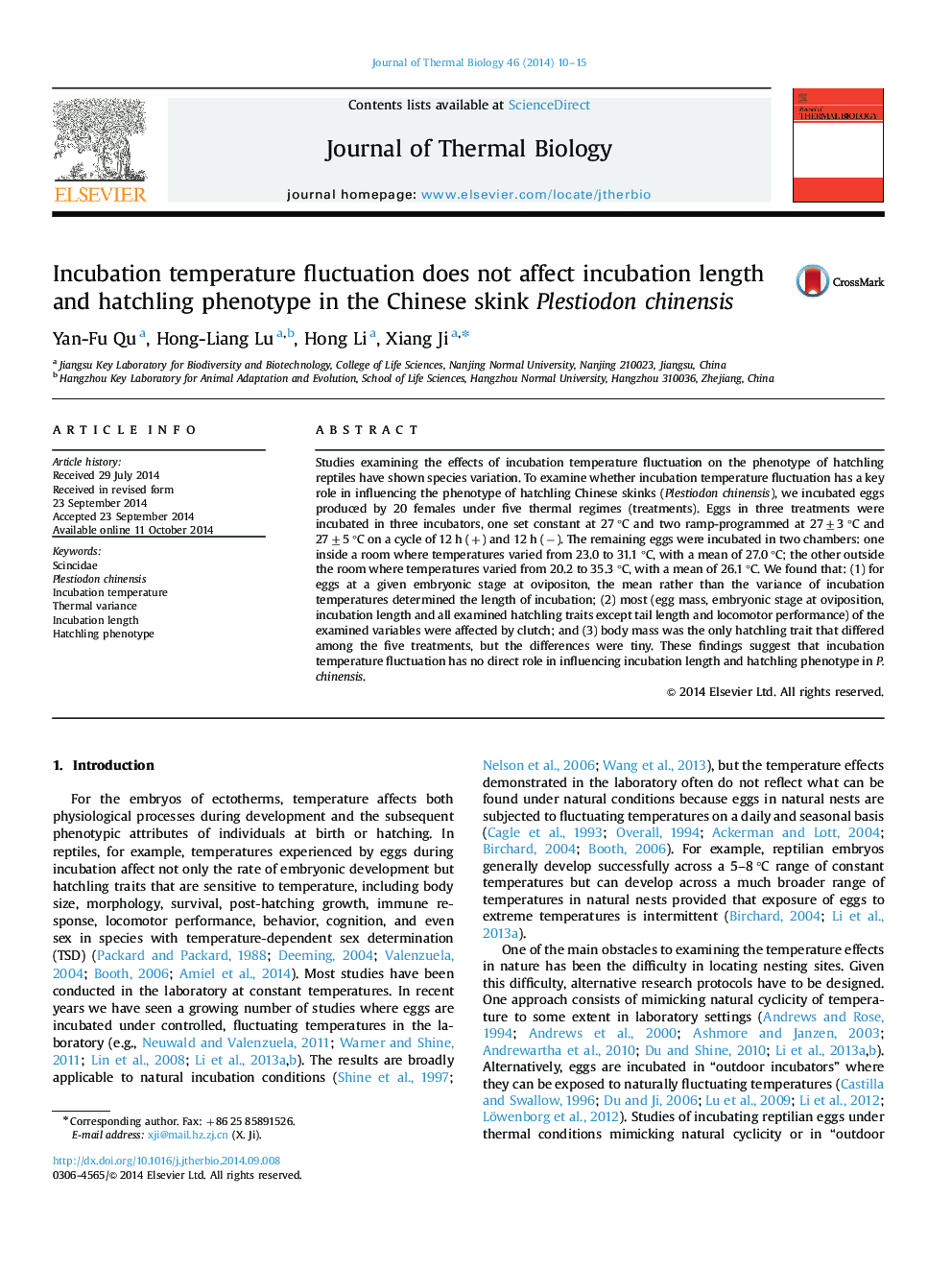| Article ID | Journal | Published Year | Pages | File Type |
|---|---|---|---|---|
| 2842860 | Journal of Thermal Biology | 2014 | 6 Pages |
•We incubated Plestiodon chinensis eggs at one constant and four fluctuating temperatures.•The mean rather than the variance of temperatures affected incubation length.•Of the 10 hatchling traits examined, only body mass differed among treatments.•Our data provide no support for the role of temperature fluctuation in affecting egg incubation in P. chinensis.
Studies examining the effects of incubation temperature fluctuation on the phenotype of hatchling reptiles have shown species variation. To examine whether incubation temperature fluctuation has a key role in influencing the phenotype of hatchling Chinese skinks (Plestiodon chinensis), we incubated eggs produced by 20 females under five thermal regimes (treatments). Eggs in three treatments were incubated in three incubators, one set constant at 27 °C and two ramp-programmed at 27±3 °C and 27±5 °C on a cycle of 12 h (+) and 12 h (−). The remaining eggs were incubated in two chambers: one inside a room where temperatures varied from 23.0 to 31.1 °C, with a mean of 27.0 °C; the other outside the room where temperatures varied from 20.2 to 35.3 °C, with a mean of 26.1 °C. We found that: (1) for eggs at a given embryonic stage at ovipositon, the mean rather than the variance of incubation temperatures determined the length of incubation; (2) most (egg mass, embryonic stage at oviposition, incubation length and all examined hatchling traits except tail length and locomotor performance) of the examined variables were affected by clutch; and (3) body mass was the only hatchling trait that differed among the five treatments, but the differences were tiny. These findings suggest that incubation temperature fluctuation has no direct role in influencing incubation length and hatchling phenotype in P. chinensis.
